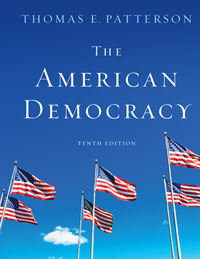| block grants | Federal grants-in-aid that permit state and local officials to decide how the money will be spent within a general area, such as education or health.
|
 |
 |
 |
| categorical grants | Federal grants-in-aid to states and localities that can be used only for designated projects.
|
 |
 |
 |
| confederacy | A governmental system in which sovereignty is vested entirely in subnational (state) governments.
|
 |
 |
 |
| cooperative federalism | The situation in which the national, state, and local levels work together to solve problems.
|
 |
 |
 |
| devolution | The passing down of authority from the national government to the state and local governments.
|
 |
 |
 |
| dual federalism | A doctrine based on the idea that a precise separation of national power and state power is both possible and desirable.
|
 |
 |
 |
| enumerated (expressed) powers | The seventeen powers granted to the national government under Article I, Section 8 of the Constitution. These powers include taxation and the regulation of commerce as well as the authority to provide for the national defense.
|
 |
 |
 |
| federalism | A governmental system in which authority is divided between two sovereign levels of government: national and regional.
|
 |
 |
 |
| fiscal federalism | A term that refers to the expenditure of federal funds on programs run in part through states and localities.
|
 |
 |
 |
| grants-in-aid | Federal cash payments to states and localities for programs they administer.
|
 |
 |
 |
| implied powers | The federal government’s constitutional authority (through the “necessary and proper” clause) to take action that is not expressly authorized by the Constitution but that supports actions that are so authorized.
|
 |
 |
 |
| Nationalization | The process by which national authority has increased over the course of U.S. history as a result primarily of economic change but also of political action.
|
 |
 |
 |
| “necessary and proper” (elastic) clause | The authority granted Congress in Article I, Section 8 of the Constitution “to make all laws which shall be necessary and proper” for the implementation of its enumerated powers.
|
 |
 |
 |
| reserved powers | The powers granted to the states under the Tenth Amendment to the Constitution.
|
 |
 |
 |
| sovereignty | The supreme (or ultimate) authority to govern within a certain geographical area.
|
 |
 |
 |
| supremacy clause | Article VI of the Constitution, which makes national law supreme over state law when the national government is acting within its constitutional limits.
|
 |
 |
 |
| unitary system | A governmental system in which the national government alone has sovereign (ultimate) authority.
|





